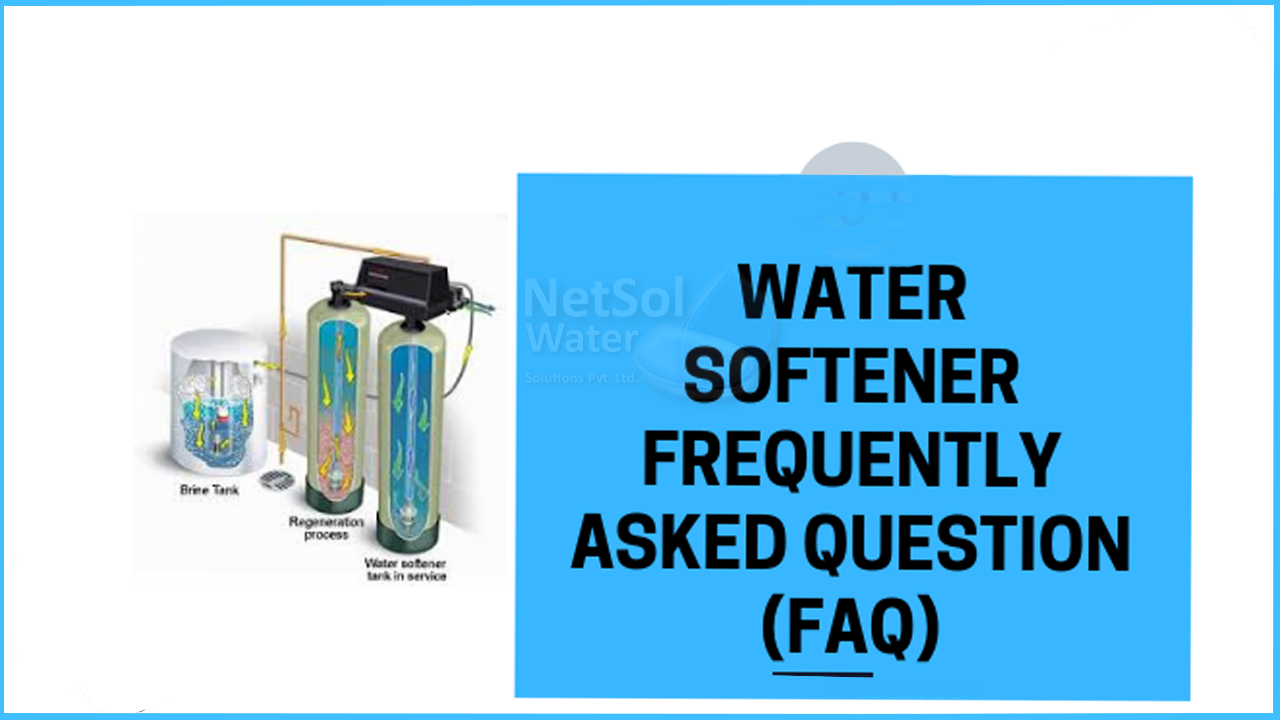Top Frequently asked Questions About Water Softeners
1. CAN YOU DRINK SOFTENED WATER?
While there is no decision to say whether delicate water is safe or unsafe to drink, in countries where drinking water comes from various sources, it is prudent to drink only sanitized water. The channels used in water purifiers aid in the removal of 99.91% of toxins that may contain harmful metals and synthetics such as lead, clay, chlorine, salt, silt, and sand. They strive to provide clean water in order to advance a sound immune system. Water purified with a NETSOL Water Purifier is safe to drink.
2. HOW DOES AUSER KNOW THAT WHAT SIZE OF WATER SOFTENER HE/SHE NEED FOR HIS HOME?
When in doubt, multiply the number of people in the house by 80, which is the average number of gallons of water a person uses each day. Increase that number by the number of grains of hardness found in your water after users tried it. This will help them decide which grain ability to look for.
3. HOW MUCH DOES A GOOD WATER SOFTENER COSTS?
The price of a water conditioner is determined by its utility and usage. Many water channels are now used as water conditioners. When selecting a water conditioner for their home, one should exercise caution. NETSOL offers a variety of water conditioners ranging from INR 7,000 to INR 90,000, including fully programmed entire house water conditioners.
4. WILL USING A WATER SOFTENER IMPROVE THE QUALITY OF USER’S HAIR AND SKIN?
The best thing about drinking plenty of purified water is that it promotes healthy, hydrated skin. If you do not properly hydrate, your skin will appear dry and dehydrated. As a result, increasing the water content of the epidermal layer of skin will result in a plump and fresh epidermal layer of skin that appears healthy. A lack of water and a buildup of dead epidermal cells also contribute to dull skin.
5. DOES WATER SOFTENER NEED SERVICE?
If your water pressure is steadily decreasing and your water softener sounds like it is constantly moving, it is possible that your water softener is in poor condition and requires maintenance.
6. WHAT IS THE LIFE EXPECTANCY OF A WATER SOFTENER?
Water softener’s maintenance is very low, henceforth, if it is properly maintained, water softeners can last from 10-15 years.
7. HOW DO THE USERS KNOW IF THEY HAVE HARD WATER AT HOME?
Minerals and sediments are abundant in the local water supply, causing damage to pipes, sinks, and even user’s hair and skin. So, to determine the need for a water softener in the home, user has to ask the following questions to himself:
- Is laundry starting to feel scratchy and stiff?
- Does he/she have scale buildup in your tubs and sinks?
- Is the washing machine wearing out faster than usual?
- Is his/her scalp and hair itchy?
If user answered “yes” to any of these questions, there is a good chance that user have hard water in their home.
8. DOES DRINKING SOFTENED WATER MAKES ONE STRONG AND HEALTHY?
Drinking more softened water can help you lose weight. As user can see, this is a zero-calorie drink that one should drink as much as he wants because it is good for his health. It has the potential to significantly increase user health's metabolism while also cleansing their body of all the toxic wastes that the body produces. It can help to control one's appetite and prevent overeating.
9. HOW DO THE USER’S KNOW THAT THE WATER SOFTENER SALT’S LEVEL IS LOW?
The difference in water quality is an obvious indicator that the softener is running low on salt. When a user begins to use a water softener, the water quality in the home noticeably improves. And the difference in quality becomes very noticeable. The user will begin to notice common hard water issues such as soap scum, dishes taking longer to clean than usual, soap not lathering well during shower, dull clothes, rough hair, dry skin, and so on. If the user notices any of these issues, it is time to refill the salt in the water softener.




